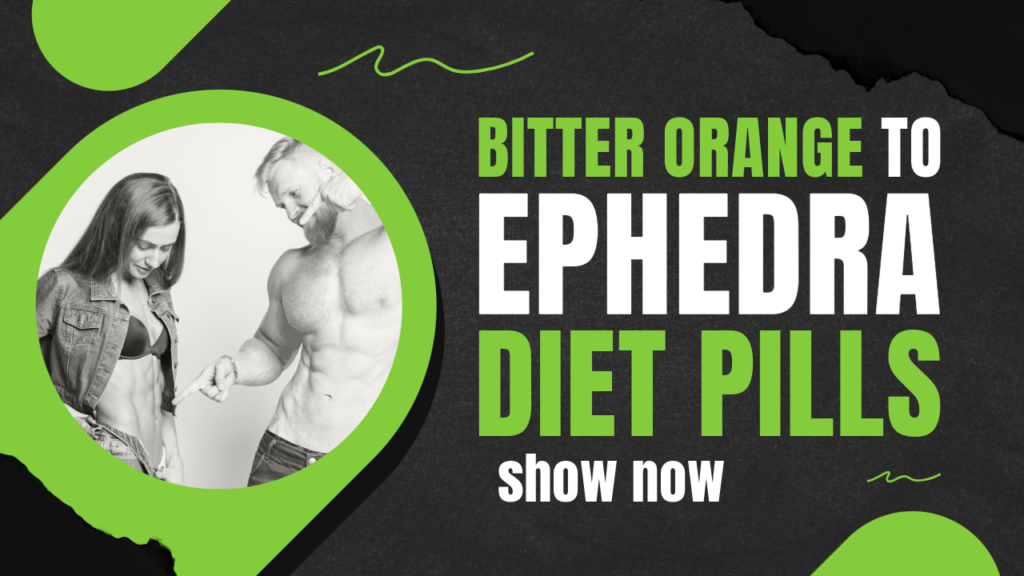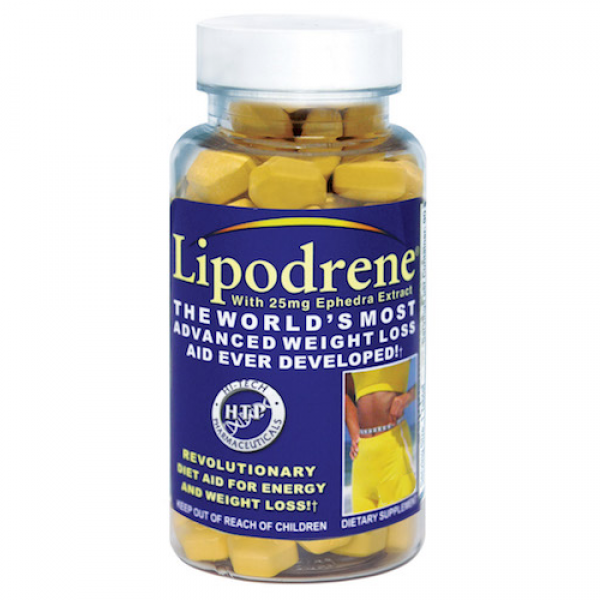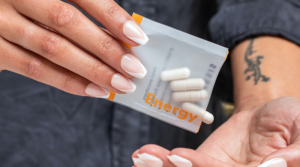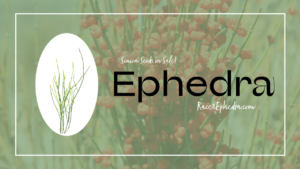Bitter orange and ephedra have become notable substances in the realms of weight loss and sports performance enhancement. Particularly, bitter orange, scientifically known as Citrus aurantium, is extensively utilized in medicine utilizing different parts of the plant including the peel, fruit, and juice, while its oil finds its place in aromatherapy and as a food flavoring agent. On the other hand, ephedra, recognized by the traditional name Ma Huang, derives its medicinal application mainly from the plant’s stem, housing ephedrine, a potent compound acclaimed for its central nervous system stimulating and decongestant properties.
The discourse on the efficacy and safety of these substances is fueled by the global actions concerning the restriction of ephedrine, spotlighting the health implications tied to their use. As the debate continues, this article endeavors to dissect the chemical composition, health benefits, potential risks, and the overall safety and efficacy of integrating bitter orange and ephedra into dietary and medicinal practices, particularly focusing on their impact on obesity, metabolism, resting energy expenditure, and thermogenesis.

The Chemistry of Bitter Orange and Ephedra
Key Chemical Components of Bitter Orange
- Synephrine: Often marketed as “ephedra-free,” bitter orange peel contains synephrine, a stimulant that shares similarities with ephedra, influencing weight loss and metabolism.
- Flavonoids: Bitter orange is rich in flavonoids, categorized into flavones, flavanones, flavonols, and anthocyanins. The most abundant flavanones detected include hesperetin and naringenin.
- Limonoids: Among the secondary metabolites, limonin is a significant component found in bitter orange, known for its health-promoting properties.
- Phenylethylamine Alkaloids: p-synephrine stands out as the most abundant alkaloid, contributing to the pharmacological actions of bitter orange.
- Vitamins and Antioxidants: The leaves and peel of bitter orange are rich in vitamin C and flavonoids, respectively, both recognized for their antioxidant capabilities.
Ephedra’s Chemical Profile
- Ephedrine: The primary compound in ephedra, known as Ma Huang, is ephedrine, a potent stimulant that can significantly affect heart rate and blood pressure.
- FDA Ban and Health Risks: Due to severe side effects like heart attacks and strokes, ephedra was banned by the FDA in 2004.
Comparative Analysis of Synephrine in Bitter Orange
- Synephrine Isomers: Confusion exists regarding the specific isomers of synephrine present in bitter orange, with at least one product containing both p-synephrine and m-synephrine.
- Pharmacological Properties: Understanding the different pharmacological properties of synephrine isoforms is crucial, as they vary significantly and impact the efficacy and safety of bitter orange supplements.
Pharmacological Actions and Uses
- Bitter Orange: Known for its diverse pharmacological actions, bitter orange is used as an antispasmodic, sedative, digestive, and tonic. It is also noted for its vascular stimulant properties.
- Substitute for Ephedra: Due to its similar properties to ephedra, bitter orange is commonly used in dietary supplements as an ephedra alternative, which helps mitigate some of the risks associated with ephedra.
100mg Ephedra Supplements for Sale

With a focus on safety, our meticulously crafted 100mg dosage supports optimal health while shedding pounds. Shop now and achieve your weight loss goals. Fast shipping and low prices guaranteed.
Health Benefits and Uses
Bitter orange extract, primarily containing p-synephrine, is extensively utilized in various dietary supplements aimed at enhancing weight loss, sports performance, and mental focus. In addition to these modern applications, bitter orange has a longstanding history in traditional Chinese medicine where it is used to alleviate symptoms of indigestion, nausea, and constipation.
Traditional and Contemporary Uses
- Digestive Health: Utilized in Traditional Chinese Medicine to treat a range of digestive issues, including indigestion, diarrhea, and constipation.
- Respiratory and Nasal Congestion: Employed for alleviating nasal congestion and other related conditions.
- Dietary Supplements: Commonly used for weight loss, enhancing athletic performance, and managing appetite.
- Skin and Fungal Infections: Applied topically, bitter orange oil is effective against fungal infections like ringworm and athlete’s foot.
- Pain Management and Other Uses: Also noted for its use in treating bruises, pain, and as an anti-inflammatory and antibacterial agent.
Culinary Uses
- Cooking and Flavoring: Bitter orange is a popular ingredient in cooking, especially for flavoring beer and spirits.
- Marmalades and Jellies: Due to its high pectin content, it is primarily used in making marmalades and jellies.
- Marinades: The juice is also used as a marinade to enhance the flavors of fish and meat.
Health and Nutritional Benefits
- Vitamin C: The high content of vitamin C in bitter orange may aid in improving skin health.
- Athletic Performance: The compound p-synephrine is recognized for its potential to boost athletic performance.
- Anti-inflammatory Properties: It is utilized for its anti-inflammatory, antibacterial, and antifungal properties, and may help in reducing cholesterol.
Despite these uses, it is important to note that scientific evidence supporting some of these health benefits, particularly weight loss and anxiety management, remains insufficient. Moreover, while there is potential for weight loss benefits from bitter orange and other citrus varieties, the evidence on their effectiveness is still limited.
Potential Risks and Side Effects
Cardiovascular Risks
- Heart Complications: Bitter orange contains synephrine, a stimulant similar to ephedra, which can cause heart problems in healthy adults, especially when combined with other stimulants like caffeine.
- Blood Pressure Concerns: Both systolic and diastolic blood pressure can increase significantly with prolonged use of p-synephrine. Additionally, bitter orange might increase the risk for high blood pressure, fainting, heart attack, and stroke when taken alone or with other stimulants.
- FDA and NCAA Bans: Ephedra was banned by the FDA in 2004 due to its severe effects on the heart. Similarly, the NCAA has banned synephrine, the active ingredient in bitter orange, listing it as a stimulant.
Regulatory Status and Safety Concerns
- Lack of FDA Approval: The FDA has not approved the use of bitter orange as a drug for weight loss or appetite suppression, highlighting concerns about its safety.
- NCAA Restrictions: Synephrine is considered a banned substance by the National Collegiate Athletic Association, underscoring its potential risks in sports and athletics.
General Health Implications
- Adverse Effects: Some studies suggest that bitter orange may be associated with adverse cardiovascular effects. There are also reports of headaches and photosensitivity, especially when bitter orange essential oil is applied to the skin.
- Contraindications: It is advised that individuals with conditions such as high blood pressure, glaucoma, heart disease, or irregular heartbeat avoid taking bitter orange. Additionally, it should be avoided during pregnancy and lactation due to a lack of safety and efficacy information.
Interaction with Medications
- Drug Interactions: Bitter orange inhibits intestinal CYP3A4 and intestinal efflux in the small intestine, which can lead to interactions with numerous drugs.
- Photosensitization Risks: Bitter orange may cause photosensitization, particularly in people with fair skin, which can increase sensitivity to sunlight.
Case Reports and Studies
- Documented Adverse Reactions: Numerous case reports of adverse reactions and events associated with bitter orange have been reported, particularly when used in combination with other products.
- Inconclusive Evidence: Despite these concerns, evidence regarding the effects of bitter orange on the heart and cardiovascular system remains inconclusive.
Ephedra Bodybuilding

This comprehensive resource explores ephedra’s benefits for weight loss, focus, and stamina, while addressing its legal and safety concerns. Ideal for serious athletes seeking enhanced performance.
Comparative Analysis of Efficacy and Safety
Safety and Efficacy of Bitter Orange Versus Ephedra
- Current Understanding of Safety: Bitter orange extracts, particularly those containing p-synephrine, are generally considered safe for use in dietary supplements and foods at commonly used doses. This safety profile contrasts sharply with that of ephedra and its active component ephedrine, which have been linked to significant cardiovascular risks.
- Regulatory Actions and Market Response: Following the ban of ephedra due to its adverse cardiovascular effects, many manufacturers have shifted towards producing ephedra-free weight loss supplements. These products often contain bitter orange extract, which is closely monitored for safety and efficacy, reflecting a market adaptation to regulatory standards and consumer safety concerns.
- Need for Further Research: Despite the perceived safety of bitter orange, especially when compared to ephedra, further studies are necessary to fully establish the evidence supporting the safety and efficacy of p-synephrine, the active compound in bitter orange. This ongoing research is crucial to validate the current use of bitter orange in various supplements and to ensure consumer safety.
Where to Buy
Bitter orange and ephedra supplements are available through various online platforms and health supplement stores. Below is a detailed breakdown of where these products can be found and their pricing:
Availability on Racer Ephedra
- Bitter Orange Supplements: The top result for bitter orange on Racer Ephedra is “Far Beyond Driven“, priced at $29.75.
- Ephedra Supplements: While direct ephedra supplements are restricted, products labeled as “Ma Huang”, which contain ephedra, are available. An example is “Green Stinger Ephedra” for $47.75.
- Synephrine-Based Supplements: Fastin, which includes synephrine from ADVANTRA Z Bitter Orange Extract, is listed on Racer Ephedra for $44.98 ($0.74/Count).
WebMD’s Vitamins & Supplements Center
- Both bitter orange and ephedra supplements can be explored further in the “Drugs & Supplements” section of WebMD’s Vitamins & Supplements Center, providing an additional resource for potential buyers to research and verify the supplements’ benefits and risks.
Conclusion
Through the comprehensive analysis presented, it is clear that both bitter orange and ephedra possess qualities that make them noteworthy in the fields of weight management and athletic performance enhancement. While bitter orange, with its active compound p-synephrine, presents a potentially safer alternative to ephedra, its uses span from dietary supplements to traditional medicine practices, highlighting its versatile nature. However, the shadow of regulatory actions and health concerns, particularly regarding cardiovascular risks, emphasizes the need for caution and informed usage of these substances.
As we navigate the nuanced landscape of herbal supplements, the transition from ephedra to alternatives like bitter orange underscores a broader market and regulatory response to safety concerns. This shift not only reflects a commitment to consumer health but also points to the ongoing need for research to substantiate the efficacy and safety of such compounds. Ultimately, individuals considering these supplements should weigh the benefits against potential risks, ideally consulting healthcare professionals to make informed decisions that align with their health goals and conditions.
FAQs
1. What are the potential health advantages of consuming bitter orange?
Bitter orange has been traditionally used in Chinese medicine to treat indigestion, nausea, and constipation. In modern applications, it is also used to alleviate heartburn, clear nasal congestion, and enhance athletic performance. Additionally, products containing bitter orange are marketed for their potential effects on weight loss and appetite control.
2. Is the use of bitter orange permitted in the United States?
Yes, bitter orange is legal in the US. However, it’s important to note that it contains synephrine, a substance similar to ephedra. Ephedra was banned by the FDA due to its association with increased blood pressure and risks of heart attacks and strokes.
3. Can bitter orange contribute to weight loss?
Research indicates that bitter orange (Citrus aurantium) might support modest weight loss when used in conjunction with diet and exercise. However, the risks associated with its use, such as potential serious health complications, might outweigh these benefits.
4. What is a safe amount of bitter orange to consume?
Consuming bitter orange extracts in dietary supplements is generally considered safe at doses ranging from 50 to 98 mg per day. Research also suggests that a combination of 40 mg of synephrine and 320 mg of caffeine can be safely consumed.
References
Koncz, Dorottya, Barbara Tóth, Muh. Akbar Bahar, Orsolya Roza, and Dezső Csupor. 2022. “The Safety and Efficacy of Citrus aurantium (Bitter Orange) Extracts and p-Synephrine: A Systematic Review and Meta-Analysis” Nutrients 14, no. 19: 4019. https://doi.org/10.3390/nu14194019
Natural Bioactive Compounds Acting Against Oxidative Stress in Chronic, Degenerative, and Infectious Diseases https://doi.org/10.1155/2018/7864269
Exactly which synephrine alkaloids does Citrus aurantium (bitter orange) contain?
https://www.uab.edu/proteomics/pdf_files/2005/SynephrineAlkaloid.pdf
herbs at a glance https://www.govinfo.gov/content/pkg/GOVPUB-HE20-PURL-gpo29967/pdf/GOVPUB-HE20-PURL-gpo29967.pdf




